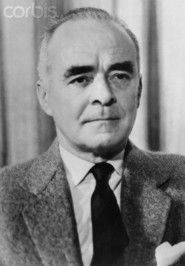A Quote by Robert South
Aristotle was but a wreck of an Adam, and Athens but the rubbish of an Eden. How completely sin has defaced the divine image in man! That man has lost his righteousness and happiness is clearly evident as we look at the state of the world today!
Related Quotes
Charity is in the heart of man, and righteousness in the path of men. Pity the man who has lost his path and does not follow it and who has lost his heart and does not know how to recover it. When people's dogs and chicks are lost they go out and look for them and yet the people who have lost their hearts do not go out and look for them. The principle of self-cultivation consists in nothing but trying to look for the lost heart.
I've learned a lot about women. I think I've learned exactly how the fall of man occured in the Garden of Eden. Adam and Eve were in the Garden of Eden, and Adam said one day, Wow, Eve, here we are, at one with nature, at one with God, we'll never age, we'll never die, and all our dreams come true the instant that we have them. And Eve said, Yeah... it's just not enough is it?
Though neither happiness nor respect are worth anything, because unless both are coming from the truest motives, they are simply deceits. A successful man earns the respect of the world never mind what is the state of his mind, or his manner of earning. So what is the good of such respect, and how happy will such a man be in himself? And if he is what passes for happy, such a state is lower than the self-content of the meanest animal.
In every civilization, life grows easier. Men grow lazier in consequence. We have a picture of what happened to the individual Greek. (I cannot look at history, or at any human action, except as I look at the individual.) The Greeks had good food, good witty talk, pleasant dinner parties; and they were content. When the individual man had reached that condition in Athens, when the thought not of giving to the state but of what the state could give to him, Athens' freedom was doomed.
How are the faculties of man to be best developed and his happiness secured? The state of a king is not favorable to this, nor the state of the noble and rich men of the earth. All this is artificial life, the inventions of vanity and grasping ambition, by which we have spoiled the man of nature and of pure, simple, and undistorted impulses.





































